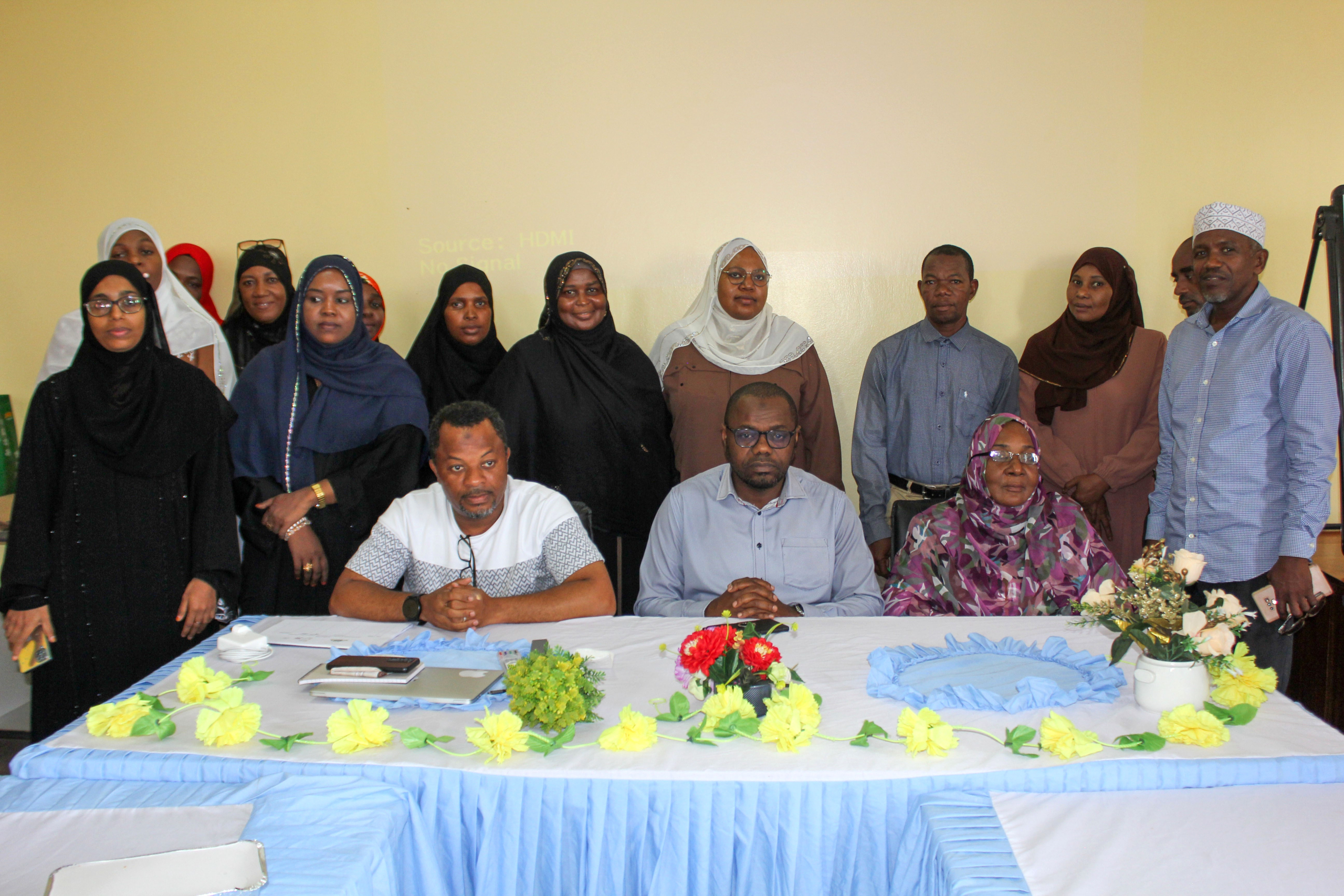Participants from government, non-governmental organizations, and communities gather for the climate risk and vulnerability assessment workshop on Pemba Island (Photo by Huzaimat Makame Vuai)
On April 5, 2025, the Government of Zanzibar hosted a workshop on Pemba Island in the Zanzibar archipelago to bring together a diverse group of key stakeholders to build consensus on a shared approach for assessing the risks and vulnerabilities of climate change impacts on the island. As part of the United Republic of Tanzania, Zanzibar’s adaptation planning efforts are carried out as a subnational process contributing to and aligning with Tanzania’s National Adaptation Plan (NAP) process, which is being developed.
According to preliminary findings from a study on country experiences with climate risk assessments, assessing the risks of climate change impacts is an essential step in NAP processes. The climate risk and vulnerability assessment (CRVA) seeks to provide baseline information to build resilience and adaptive capacity, setting the stage for effective climate change action on Pemba Island.
The event marked a significant milestone in Zanzibar’s efforts to strengthen its resilience against climate change impacts. With technical and financial support from the NAP Global Network—funded by the German Federal Ministry for Economic Cooperation and Development (BMZ)—participants from government institutions, local authorities, non-governmental organizations, and local communities across Pemba Island gathered to engage in the workshop through open discussions to reach an agreement on a methodology for the CRVA, a critical step in the island’s adaptation planning.
A participant shares their perspective at the CRVA workshop on Pemba Island as part of Zanzibar’s NAP process (Photo by Huzaimat Makame Vuai)
“Climate change poses significant risks to the economy, ecosystems, and livelihoods of communities in Pemba Island. To address these challenges, an effective climate risk and vulnerability assessment is an essential step in strengthening resilience through national adaptation planning.” —Farhat Mbarouk, Director, Department of Environment
Led by the Department of Environment and the First Vice President’s Office, the goal of the workshop was to facilitate an open space to review the proposed CRVA methodology. It encouraged the exchange of knowledge between these key actors to ensure that this methodology is robust, accurate, and aligned with the local needs and priorities.
The workshop also aimed to encourage technical conversations among participants to strengthen the understanding of key concepts in this process, including climate hazards, exposure, risks, and vulnerabilities.
Workshop participants take notes on key elements of the CRVA approach (Photo by Huzaimat Makame Vuai)
The agreement between the workshop participants on this methodology plays a key role in ensuring that the assessment accurately reflects Pemba’s unique climate risks and vulnerabilities. This also ensures it is practical and suitable for the context of the island.
According to the Intergovernmental Panel on Climate Change, even under lower emission scenarios, sea-level rise will be unavoidable for low-lying islands. This places added urgency on Zanzibar’s adaptation efforts.
“Low-lying islands are on the frontlines of climate change, having to grapple with the climate hazards and risks,” — Dr. Zakaria Khamis, Director, Zanzibar Fisheries and Marine Resources Research Institute (ZAFIRI)
By advancing the CRVA through inclusive dialogue and engagement, Zanzibar is making meaningful progress in preparing for climate change impacts and aligning its NAP with local realities.


